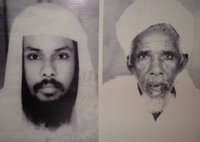The Hikam of Ibn ‘Ata’illah / Chapter 10

And he said (may Allah be pleased with him!):
89. Far be it from our Lord to repay with credit the servant who deals with Him in cash.
90. Suffice it as a repayment to you for obedience that He has judged you worthy of obedience.
91. It suffices as a reward for the doers of good that He has inspired obedience to Him in their hearts and brought upon them the existence of intimacy between Him and them [mu’anasa].
92. Whoever worships Him for something he hopes for from Him, or in order to stave off the arrival of chastisement [al-‘uquba], has not concerned himself with the real nature of His Attributes [bi-haqqi awsafihi].
93. When He gives, He shows you His kindness [birr]; when He deprives, He shows you His power [qahr]. And in all that, He is making Himself known to you and coming to you with His gentleness.
94. Deprivation [al-man‘] hurts you only because of the lack of your understanding of Allah in it.
95. Sometimes He opens the door of obedience for you but not the door of acceptance; or sometimes He condemns you to wrong-action, and it turns out to be a cause of arriving at Him.
96. A disobedience that bequeathes humiliation and extreme need is better than an obedience that bequeathes self-infatuation and pride.
97. There are two blessings [ni‘matan] from which no being can be separated and that are inevitable for every creature: the blessing of existence [al-ijad], and the blessing of sustenance [imdad].
98. He bestowed His blessings upon you, first, through giving you being [bi’l-ijad], and, second, through uninterrupted sustenance [imdad].
99. Your indigence [faqa] belongs to you essentially, for accidents do not abolish essential indigence: the trials that arrive in this world are but reminders to you of what you ignore of indigence.
100. The best of your moments is the one wherein you witness the existence of your indigence and, through it, arrive at the existence of your lowliness [dhilla].
101. When He alienates you from His creatures, then know that He wants to open for you the door of intimacy with Him.
102. When he loosens your tongue with a request, then know that He wants to give you something.
103. The imperative need [al-idtirar] of the Gnostic never vanishes, nor is his repose [qarar] in anyone but Allah.
104. He illumined exterior phenomena [az-zawahir] with the lights of His created things [athar]; and He illumined the secrets [as-sara’ir] with the uncreated lights of His attributes [bi-anwar awsafihi]. For that reason, the lights of exterior phenomena set, whereas the lights of hearts [al-qulub] and of the secrets [as-sara’ir] do not set. That is why it is said, “Verily, the sun of the day sets at night, but the Sun of hearts [shams al-qulub] never sets!”






